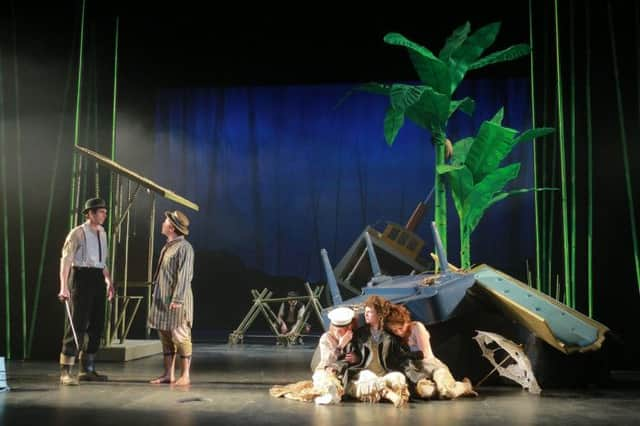Theatre review: The Admirable Crichton, Pitlochry


****
Pitlochry Festival Theatre
Yet Barrie also had an uncomfortable eye for the truth. In his great 1902 satire The Admirable Crichton, he demolishes the class assumptions on which polite Edwardian society was based with a boldness that exposes present-day costume dramas like Downton Abbey for the timid establishment propaganda they are.
And in this memorably handsome and thoughtful Pitlochry production by Richard Baron, the radicalism of the play is emphasised by the simple device of placing Barrie the playwright on stage, viewing the characters with a kindly eye and recounting his own detailed stage directions. The effect is to put us at a perfect reflective distance from the action and also, finally, to let us see Barrie’s sense of shock at the extent of the human tragedy he has exposed.
Advertisement
Hide AdSo here – in a play that might have been designed to bring out the best in John Durnin’s current Pitlochry company – we have the conventional opening scenes in an aristocratic London drawing room, where the eccentric old Earl of Loam is planning a round-the-world yacht trip. We have the two scenes following the party’s shipwreck on a Pacific island, during which the butler Crichton steadily emerges as the natural leader of the group, and the likely partner of Lord Loam’s splendid eldest daughter, Lady Mary; followed by the final scene, the return to a “civilisation” that aggrandises the cowardly and stupid, allows them to control the narrative on the basis of their birth, robs Mary of her worthy partner, and leaves Crichton no longer able to accept his place as a servant.
Barrie’s play contains some disturbing elements: 21st century audiences know all too much about what became of the early 20th century’s interest in “natural” leaders and benign dictatorship.
In an age when the British class system sadly seems more entrenched than a generation ago, though, this is a timely and immensely worthwhile production, graced with two fine leading performances from Dougal Lee as Crichton and Helen Mallon as Lady Mary and by an excellent Alan Steele as Barrie himself, disturbed and shaken by the truth his deft dramatic structure has brought to light.
(Seen on 09.07.14, in repertoire until 15 October)